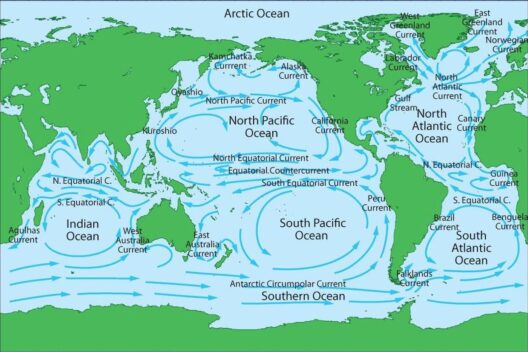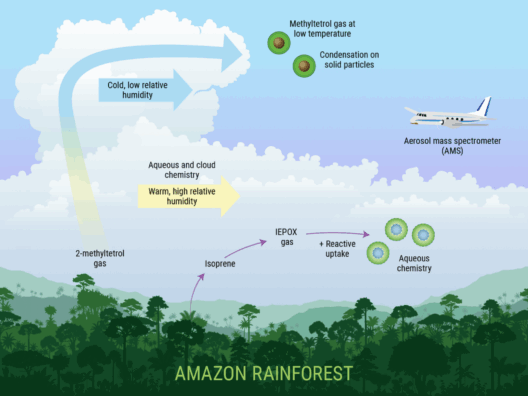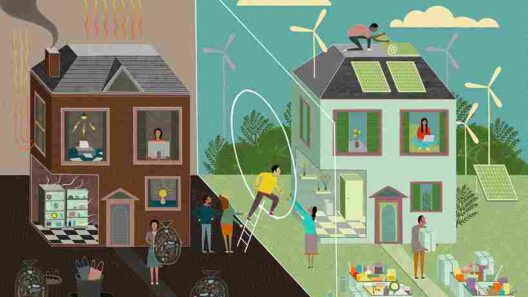Global warming is one of the most pressing issues of our time. The phenomenon of climate change has sparked a myriad of discussions, debates, and actions across the globe. Yet, despite an array of scientific evidence and alarming forecasts, the urgency to combat this existential threat often fluctuates in public consciousness. As we explore the multifaceted ways to mitigate the effects of global warming, it is paramount to recognize that prevention starts with us. Individual and collective actions can accumulate to produce significant change.
The first step to addressing global warming is understanding its root causes. The primary driver of this crisis is the buildup of greenhouse gases in the Earth’s atmosphere, chiefly carbon dioxide (CO₂) and methane (CH₄). These gases trap heat from the sun, resulting in a rise in global temperatures, altered weather patterns, and a cascade of environmental consequences. Human activities, particularly the burning of fossil fuels for energy, deforestation, and intensive agriculture, are largely responsible for this increase. By acknowledging our roles in these processes, we can take concrete actions towards significantly reducing emissions.
Reducing fossil fuel consumption is crucial. Transitioning to renewable energy sources such as solar, wind, and hydroelectric power can drastically diminish our reliance on carbon-heavy fuels. Individuals can contribute by opting for ‘green’ energy providers or even installing solar panels at home. Governments and corporations can accelerate this shift by investing in research and development of alternative energy technologies. Furthermore, supporting legislative measures aimed at transitioning to clean energy can amplify these efforts on a larger scale.
Energy efficiency is another critical area where improvements can be made. Simple actions, such as replacing incandescent bulbs with energy-efficient LEDs, using energy-saving appliances, and improving insulation in homes, contribute to substantial energy conservation. Furthermore, adopting practices such as carpooling, utilizing public transport, or biking instead of driving not only curtails fossil fuel usage but also reduces greenhouse gas emissions. The cumulative effect of these daily choices can be profound.
While many individuals may feel that their actions are merely a drop in the ocean, collective grassroots movements illustrate the power of community in combating climate change. Initiatives such as local clean-up drives, tree planting campaigns, and educational workshops foster awareness, encouraging more individuals to join the fight against global warming. These community-driven efforts not only address environmental degradation but also cultivate a sense of stewardship and responsibility towards the planet.
Moreover, the nexus between consumerism and climate change must not be overlooked. The modern economy often prioritizes convenience and consumption, which exacerbates environmental degradation. By making conscientious choices as consumers—selecting sustainable products, reducing single-use plastics, and supporting local businesses—we can shift the market dynamics toward more environmentally friendly options. This concept suggests that consumer demand drives production; therefore, by opting for sustainability, we are indirectly influencing companies to adopt greener practices.
Additionally, agriculture plays an indispensable role in the climate crisis. Modern farming techniques contribute significantly to greenhouse gas emissions due to industrial methods and livestock production. Transitioning to regenerative agriculture—which focuses on restoring soil health, promoting biodiversity, and utilizing organic practices—can provide a viable solution. Consumers can support this shift by sourcing food from local farms, choosing organic produce, and reducing meat consumption. Not only does this contribute to mitigating climate change, but it also enhances community resilience and health.
Furthermore, confronting the socio-political dimensions of climate change is vital. Environmental justice emphasizes that marginalized communities often bear the brunt of climate impacts while contributing the least to the problem. Thus, advocating for policies that address these disparities—such as equitable resource distribution, support for vulnerable populations, and investment in green infrastructure—is essential. Engaging in political activism and encouraging climate-conscious leadership can mobilize collective action towards systemic change.
Education stands as a cornerstone in the fight against global warming. By fostering climate literacy through comprehensive education systems, future generations can be equipped with the understanding and skills to tackle this crisis effectively. Schools and organizations should integrate climate change into their curriculums, emphasizing the interconnectedness of ecosystems and human impact. Knowledge empowers individuals, and awareness ignites action.
Ultimately, combating global warming requires a commitment to long-term change. It is essential to recognize that these actions are not merely reactionary but must become embedded in our daily lives and societal norms. A culture of sustainability should be cultivated, wherein environmental awareness is intrinsic to decision-making at all levels, from individual behavior to corporate responsibility to governance.
In conclusion, preventing global warming from worsening requires a multifaceted effort that begins with each of us. While it may seem daunting, individual and collective actions can lead to considerable reductions in greenhouse gas emissions. By embracing renewable energy, enhancing energy efficiency, advocating for sustainable practices, addressing agricultural impacts, promoting social equity, and fostering education, we can pave the way for a sustainable future. Ultimately, this is not just about preventing climate change; it is about ensuring a livable planet for generations to come. The power of change resides in our hands, and the time to act is now.








